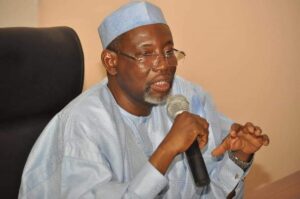World Bank lauds Tinubu’s policy reforms, urges speedy palliatives delivery
World Bank Country Director, Nigeria Office, Shubham Chaudhuri, has lauded President Bola Tinubu’s reform policies.
Chaudhuri, who commended the policies at a symposium on Thursday in Ibadan, however, called for speedy roll out of palliatives to cushion their effects on Nigerians.
The symposium was organised by the Department of Agricultural Economics, Faculty of Economics and Management Science, in collaboration with the Nigerian Institute of Social and Economic Research (NISER).
The theme of the symposium is: “Economic Opportunity Pathways to Navigating Post-Reform Challenges in Nigeria.”
Chaudhuri said the symposium was timely as it would provide participants the opportunity to discuss how Nigeria could navigate the current challenges following the removal of fuel subsidy.
According to him, it is really about making the best possible use of the revenue that would now flow to the federation.
“This should be in a way that makes sure that ordinary people can get some relief because it has been hard with the prices increasing.
“We think that complementary packages should be rolled out as quickly as possible in a way that the Nigerian people can actually see and feel that there is hope ahead of them.
“We at the World Bank are ready to help with these and we look forward to working closely with all stakeholders,” he said.
Chaudhuri noted that government had to be very clear, transparent and as detailed as possible about how the funds would be used.
“But it is really up to the Nigerian people, civil societies and the media to follow through and make sure that what has been announced is actually being delivered.”
He said every stakeholder had a role to play in monitoring and assessing the impact of the government policies because it was time for collective actions.
He noted that all policy measures so far taken by President Tinubu, right from his first day in office, were on point.
“And there are lots more to be done immediately in terms of relief packages, the cash transfer and a whole package of palliatives that need to be immediately delivered to the people.
“We have helped the government set up a social assistance programme, we have many social investment programmes, one of such is that we have decided to work to support government to deliver cash transfer digitally to families and individuals whose identities are verified.
“And the second one, which is in all the states of the federation, is called NG-Cares; this is to help communities and farmers through a whole range of measures that are implemented by the state,” Chaudhuri said.
Also, Director General, NISER, Prof. Anthonia Simbine, said the challenges in the country were quite many and could be overwhelming but if they are managed properly then there would be some positive changes that could improve the lives of our people.
“The problem the country is facing today are historical. They have origins in years before now and we will not expect that they will be overcome overnight.
“The government of today is taking steps that should have been taken overtime but nevertheless now that they have taken the steps people need to be a bit more patient and the government should support people with mechanism for managing the situation that they’ve found themselves in,” she said.
In his remarks, the Head of Department, Agricultural Economics, University of Ibadan, Prof. Taiwo Awoyemi, said the way policy implementation is done in Nigeria should not be as usual.
“Everybody will have to make a lot of sacrifice to make sure that the transformation agenda becomes fruitful and we should all be ready to contribute to the development of Nigeria,” he said.
The News Agency of Nigeria (NAN) recalls that the National Economic Council had in its first meeting under the current administration, advocated the use of NG-CARES programme in the states and FCT to implement the proposed palliative.




